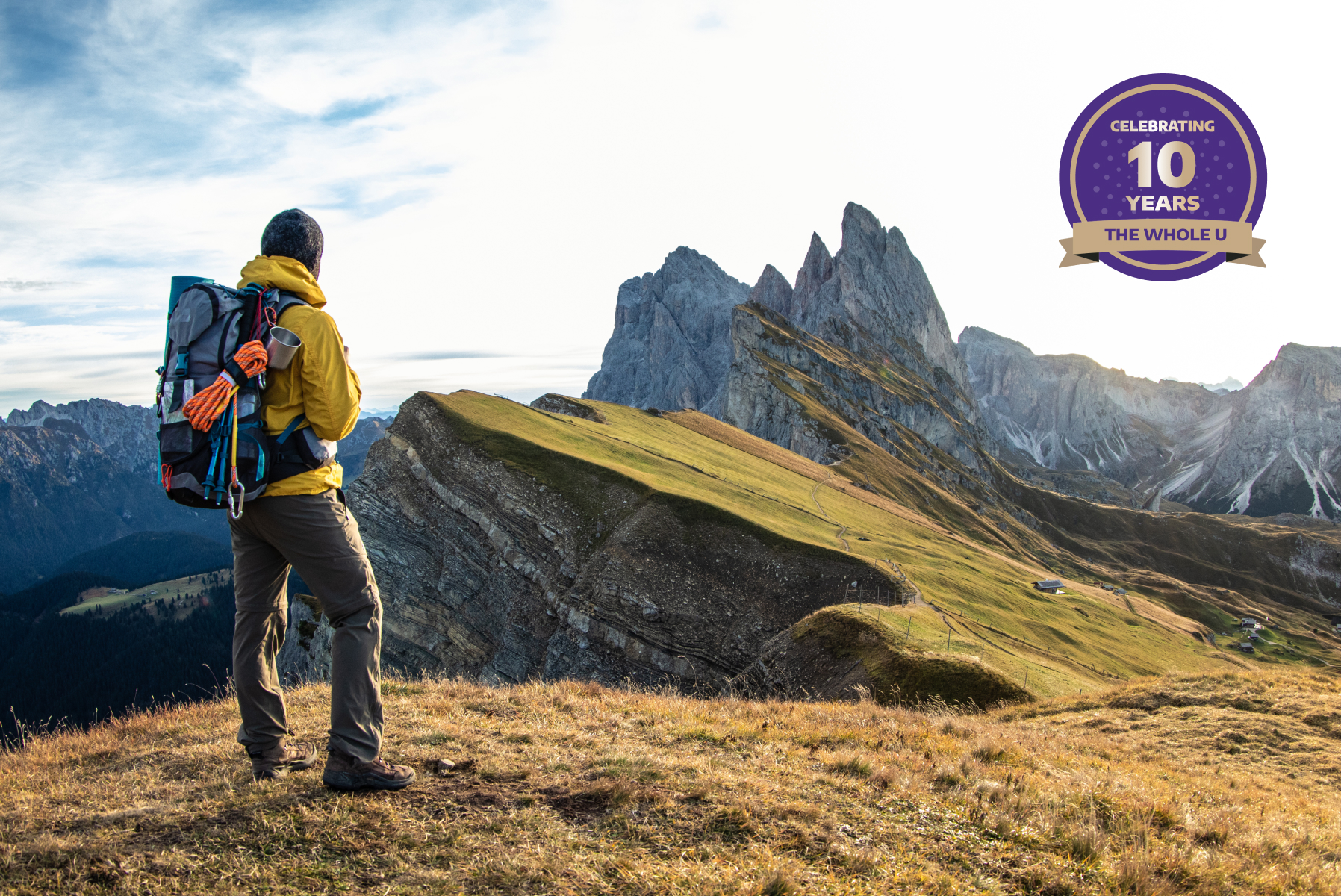
Staying Safe for Fall & Winter Hiking
As an avid hiker and backpacker, I have experienced the PNW in all its weather elements. I am the Chair of the Mountaineers Foothills Branch Backpacking Committee, Co-Creator and Administrator for a beginning hiking series called GoHike, and an urban walk leader. My emphasis on safety is a priority. I help participants gain confidence, practice leave no trace principles and foster a space for belonging. I welcome all levels of physical abilities and create a community of outdoor enthusiasts who take care of one another on the trails.
The wintry weather is here, and safety essentials are necessary on our trails. We need options for the wet, cold, and snowy trails to recreate on. Snow fans rejoice this time of year because snowshoeing, skiing and snowboarding opportunities abound. But what about the rest of us who just want to get on the trails and hike? While it can be exciting to hike in snow, see animal tracks, and be in awe of frozen waterfalls, lakes and experience the moody, misty wonders of our PNW trails, additional safety measures are essential.
Fortunately, with a little knowledge, prep, and awareness, hiking safely in the colder months is possible.
What can I do to prepare?
Be aware of the conditions of the roads and trails before you go.
Bring a map – dI cannot emphasize how important a map is and knowing how to use it! Check out the smartphone apps Gaia or All Trails to download maps to use offline while hiking. Both have affordable subscription rates. Paper maps are also available at local outdoor retailers. Remember, phones can die, so bring your battery pack and a paper map as a backup.
Know before you go! Check out Washington Trails Association for current trip reports, weather forecasts, current conditions, and parking passes required at trailheads.

Captured by Christina Buckman
What are the essentials for hiking during the fall/winter?
1. Always bring the 10 essentials, regardless of the season!
- Headlamp/sun protection/first aid/knife/fire starter/shelter (emergency bivy)/extra food, water, and clothes.
- Consider hiking poles: They help with joint impact and balance.
2. Reduced visibility is often the case in the colder hiking season. Know the forecast, and prepare for it to change.
3. Best practice is to not go alone, but if you do, tell someone where you will be, and when you expect to be back. Providing GPS coordinates of the trailhead you start at is an immense help should you need someone to help in an emergency. GPS coordinates can be obtained on Google Maps by clicking on the location of the trailhead. Copy and paste in the message you send to your emergency contact.
4.Be aware of hypothermia and the signs that could mean trouble.
Never wear cotton. A hiking cardinal rule! If it gets wet in our climate, it will not dry and can cause hypothermia to set in fast. Wear wool or synthetic layers and have extras just in case.
5. Proper footwear.
Unless you are snowshoeing, on skis or boards, hiking on trails may sometimes require strap-on micro-spikes or Yaktrax. They are inexpensive and will give you the added confidence on trails that may be icy or snowy. Make sure to have hiking boots that have good traction and are waterproof, to keep your feet from getting wet. Dry feet are happy feet!

Captured by Christina Buckman
What are other resources for information on hiking and other outdoor adventures?
My go-to is Washington Trails Association– Not only does it have the most comprehensive trail database with search components to cater to your needs, but timely articles, current trip reports and opportunities to give back. We owe a great deal of thanks to those diligent WTA volunteers who spend time on the trail keeping it safe for us.
The Mountaineers – With a myriad of courses, clinics and seminars spanning a variety of activities, the options are endless, and you know you will be well cared for with expert leaders. Scholarships available for memberships and courses.
Where can I get inspired?
Instagram can be a great resource for inspiration, without having to read long articles or blog posts. Check out the IG handles I follow below for diversity, inclusivity, body positive profiles, helpful tips, and travel pics for inspiration.
- Her PNW Life – community of adventurous women in the PNW
- Issaquah Alps Trails Club – Dedicated to engaging the public to preserve, protect & promote the land, wildlife, and trails.
- The Mountaineers – Nonprofit, volunteer-led org working to inspire a lifetime of outdoor adventures.
- Brown Girl Outdoor World – Black, Indigenous and Anti-racist POC 2SLGBTQ+ in the outdoors
- She Colors Nature
- Unlikely Hikers – Body liberation and anti-racism outdoors
- Women Who Hike – Empowering women who hike on and off the trail.

Captured by Christina Buckman
How can I build community?
Having a sense of belonging and community as outdoor enthusiasts is essential, and incredibly rewarding. I highly encourage you to research options where you can meet new people, to learn from and be inspired by one another. My volunteer work with the Mountaineers has been and continues to be, the greatest source of my inspiration. The best part is making lifelong friendships and connections. We are fortunate to live in a state surrounded by water and mountains. Get out there, be safe, have fun, and hike on!

Christina Buckman (she/her) is a UW Alumni and works as an Academic HR Business Partner on the Bothell Campus. As an employee of the University for 11 years, she is proud to be a Husky. As an avid hiker and backpacker, she is a mentor and leader with the Mountaineers, where she focuses on safety, inclusivity, body positive mentorship and makes sure everyone feels a sense of belonging as she shares her passion for the outdoors.